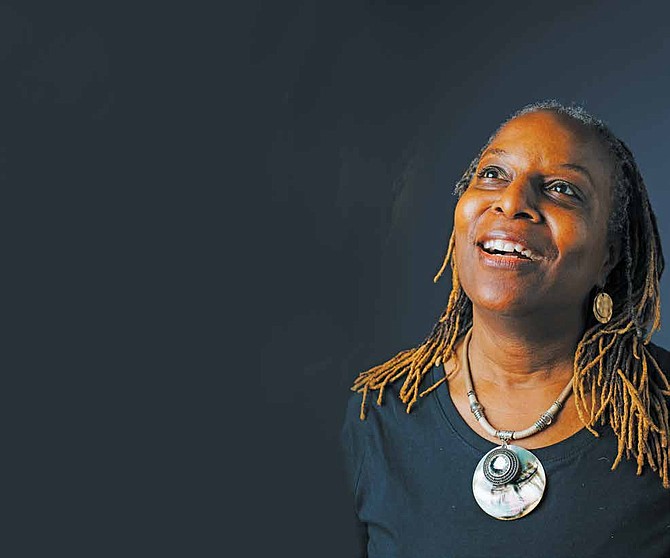BOOK DETAILS BLACK WOMEN’S EXPERIENCES WITH THEIR HAIR
Lyzette Wanzer is the author of “Trauma, Tresses and Truth: Untangling Our Hair Through Personal Narratives.” PHOTO PROVIDED BY INDEPENDENT PUBLISHERS GROUP.
WITH THEIR HAIR
BY TIA CAROL JONES
the one weapon Wanzer knew she could wield was her pen.
book comes out on Tuesday, Nov. 8th.
called, “Twisted,” about incidents with her hair. She wanted to take that, expand it and make it a panel. She came up with “Trauma,
Tresses and Truth” and recruited four other authors.
There wasn’t one at the time. Her book, which features essays by Afro Latina and African American women about their experiences
in life with natural hair. It helped Wanzer do something with her rage and her sense of impotence around the racial injustice
that led to Floyd and Taylor being killed.
that were going on. This helped me get through that,” Wanzer said.
called Trauma, Tresses and Truth and launched it in Summer 2021.
is a proxy for racism. The hair is a marker of race. If people are
biracial or multiracial, a person’s hair can give them a way.
hair is distracting, that’s a common word, too big, unprofessional,
that’s another way to bring us into line, have us feel that we’re still not quite there as full citizens,” she said, adding that when Black women’s hair is relaxed, or bone straight, or Black women wear weaves, those same criticisms aren’t given.
wanted it to be tightly curated.
nationwide CROWN Act Protection. Also, she wants Black women to understand that the experiences they have had, regarding hair
discrimination, is Universal and they are not alone.
Latest Stories
- DEMOCRAT NATALIE HOWSE PRIMED, PREPARED, AND READY TO SERVE AS CIRCUIT COURT JUDGE OF THE 1ST SUB CIRCUIT
- Commissioner Donna Miller Convenes First Meeting of Chicago–Cook County Task Force to Reduce Violence Against Women
- Cook County Clerk and Chicago Bears Launch Historic High School Early Voting Program
- OWN ANNOUNCES MAXXED OUT: A BOLD NEW FINANCIAL INTERVENTION SERIES PREMIERING JANUARY 10, 2026
- More than 1,500 seniors walk the red carpet at 42nd annual CHA Senior Gala
Latest Podcast
Wendy Thompson-Friend Health

